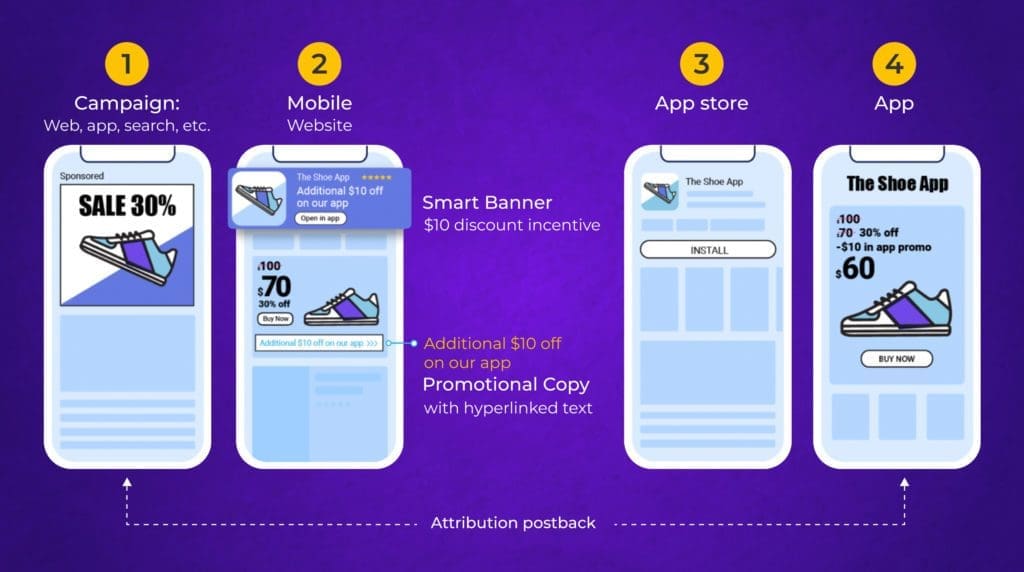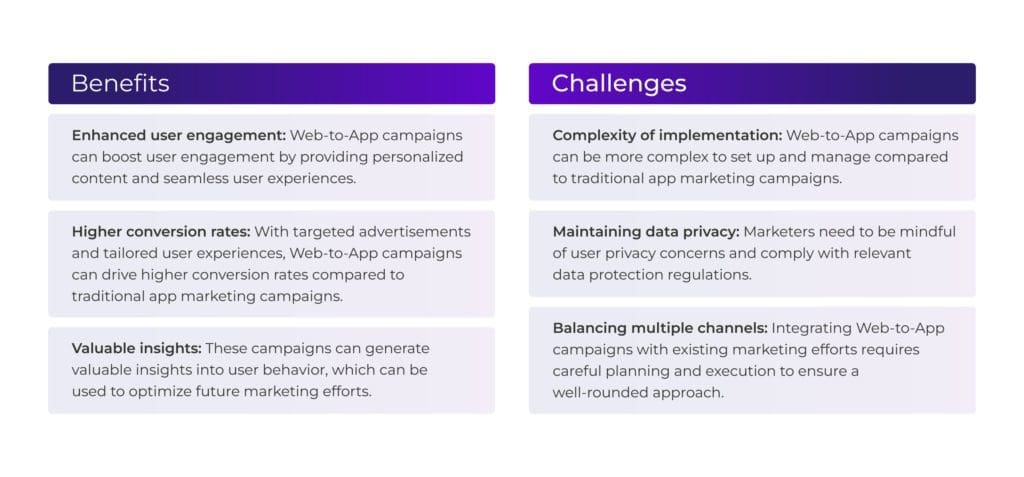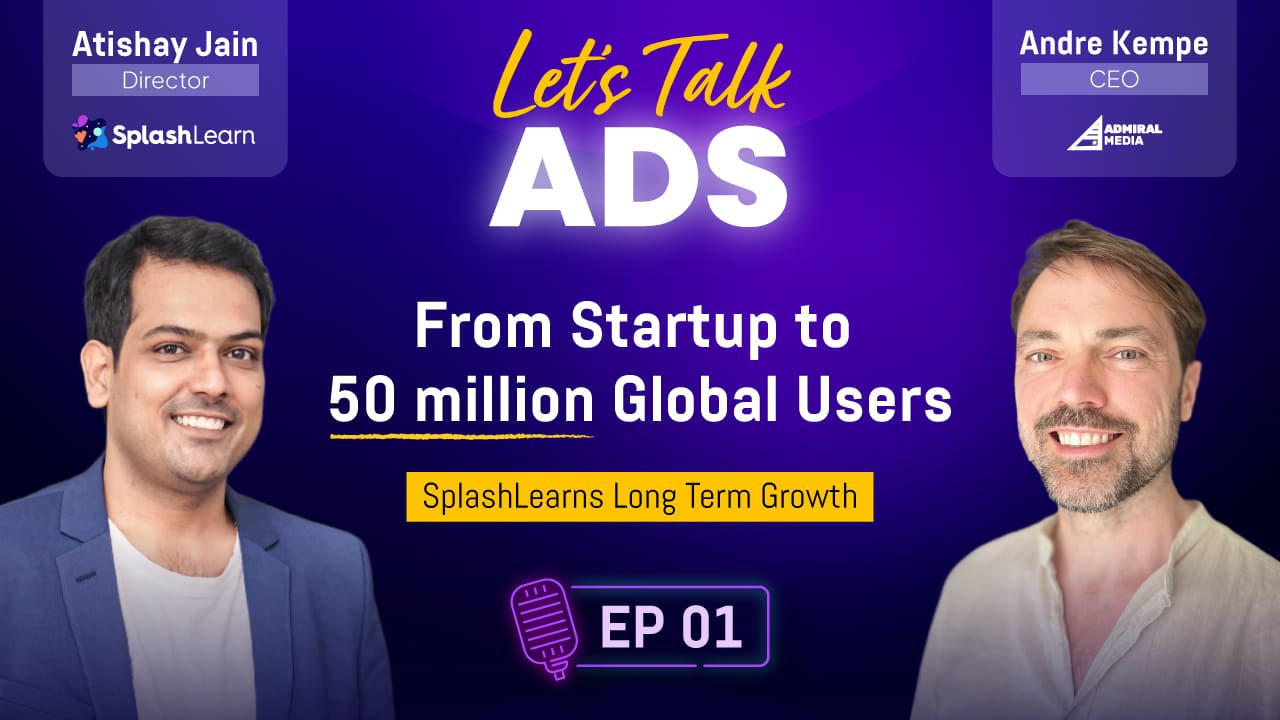As the digital world continues to evolve, it is imperative for businesses to adapt and explore innovative strategies to engage with their users. One such strategy that has gained traction recently is the implementation of web-to-app campaigns. This approach, while not without its challenges, offers unique possibilities for enhancing user engagement and app installations.
Table of Contents
The Role of Web-to-App Campaigns in Mobile App Growth Strategies
With the number of apps on our devices increasing and our attention spans decreasing, the threshold for installing a new app is higher than ever before. Experienced users may find being rerouted directly to an app store disorienting or frustrating. Web-to-app campaigns can provide an effective funnel for increasing conversion rates and overall ROI. These campaigns play a pivotal role, with several key benefits that drive user engagement, increase conversions, and enhance overall user experience. These landing pages on websites provide an opportunity for users to interact with the app’s USPs before downloading the app, driving installs and further user engagement with it.
What are Web-to-App Campaigns for Mobile App User Acquisition?
Web-to-app campaigns are marketing strategies that drive users from a mobile website to a mobile application. This strategy is particularly effective for advanced users who need more than just catchy ad creatives and ad personalization. The idea is to engage users in different ways, opening up unlimited possibilities for the brand. For example, brands can create personalized experiences on their websites, allowing users to explore their value proposition before moving to the app. They can also create personalized promotions for users to complete a transaction in the app or leverage smart banners to direct users to an app store.
What is the user flow of Web-to-App Campaigns?
A typical user flow for a (web-to-app user acquisition campaign) involves the following steps:
- A user encounters an ad on a platform (like social media or a search engine).
- Upon clicking the ad, the user is directed not to the app store, but to a brand’s mobile website or a specifically designed landing page.
- On the website, the user can engage with the brand in various ways. They might explore the service, product, or game featured on the site. The website might also present personalized promotions or incentives for the user to complete a transaction in the app.
- If the user decides to proceed, they are then directed to the app store to download the app. Alternatively, if the app is already installed, they can open it directly from the website.
Benefits and challenges of Web-to-App campaigns
What app categories are Web-to-App campaigns especially good for?
These campaigns are particularly beneficial for apps that offer partial content or require user registration to unlock additional features, as they encourage users to download the app and engage with it further. Web-to-App campaigns can be effective for various app categories, including:
- Content-based apps (books, movies, music, etc.)
- Apps for personalization (widgets, wallpapers, etc.)
- Fitness apps
- Dating apps
- Reader apps
- Horoscope apps
- Food delivery apps
 It’s highly valuable for product teams to have a clear vision of their user personas, flow, and funnel conversion goals to be able to include this as an option in their strategies, as it requires landing page development and maintenance.
It’s highly valuable for product teams to have a clear vision of their user personas, flow, and funnel conversion goals to be able to include this as an option in their strategies, as it requires landing page development and maintenance.
The Conversions API should be set up!
If you are running paid advertising on Meta, the Conversions API (cAPI), allows you to send web events directly from your server. This has become increasingly relevant with Apple’s iOS 14 privacy updates and ITP changes which restrict ad tracking. cAPI can help overcome these limitations by treating your server as a cookie storage, sending vital parameters like fbc, fbp, user_agent, IP address, etc., to Facebook for tracking campaign effectiveness. Moreover, we’ve seen great success with testing creatives using web-to-app campaigns, compared to testing creatives through SKAN. (This deserves an article for itself…).
Summarizing
Web-to-app campaigns present a unique opportunity for brands to drive growth and engagement. Although challenges exist, the potential benefits make it a strategy worth considering for brands looking to leverage the web for app growth. Web-to-App has become a must-have tool for testing web onboardings and deferred deep links.







